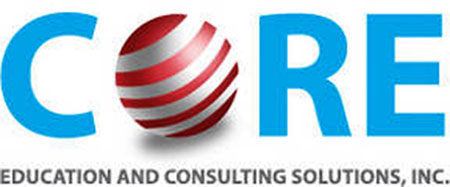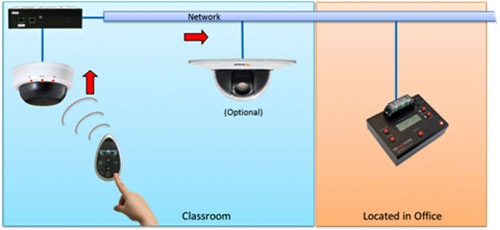
by Jamie Lee
March 5, 2014
from Tabublog Website

A really efficient
totalitarian state would be one
in which the all-powerful executive of
political bosses and their army of managers
control a population of
slaves who do not have to be coerced,
because they love their servitude.
To make them love it is the task assigned, in present-day totalitarian
states,
to ministries of propaganda, newspaper editors and
schoolteachers.
… Most men and women will grow up
to love their servitude
and will never dream of revolution…"
Aldus Huxley
Brave New World
The philosophy in the school room in
one generation
will become the philosophy of government in the next.
Abraham Lincoln
The two previous essays titled,
...covered
how the United States education system was designed and funded by the
wealthy elite Robber Barron's of the early 20th century and continue to have
ever greater influence in the way our children are being educated.
The implementation of the new
global education
agenda uses the Common Core curriculum in public schools to get students
away from traditional classroom education instruction and instead learning
will come primarily from computers for their educational needs throughout
our public schools.
Common Core is based around "the greatest change
in education in decades", according to
Obama.

This essay, Part III, covers the global
education corporation known as CORE International where big business is
funneling their products and services through. Also discussed is the United
Nations "Education for All" agenda.
CORE works glove in hand with the United Nations
and not-so-coincidentally dovetails with the same folks who are aggressively
implementing their
Agenda 21,
TPP and
ALEC plans for stated global
uniformity and compliance to a one world order.
CORE has been the fastest
growing company in India for the past three years with over 40% growth per
annum.
CORE International is already operating in over
30 country's throughout Europe and Asia as of the end of 2013, but not more
so than in the United States and England.
CORE INTERNATIONAL
Headquarters: Punjab, India.
From their Annual Financial Report
Introduction:
"CORE is
a global end-to-end, best-of-breed education solutions provider that aims to
transform the education spectrum encompassing Pre-K, K-12, Higher Education
and Technical Career Education.
CORE strives to improve the quality of human
capital as well as the global learning ecosystem through innovation in order
to produce better educational outcomes.
CORE's operations
span multiple geographies globally, with its primary focus being the
United States, the United Kingdom and India, and with additional
operations in Asia Pacific, Africa, the Caribbean and the Middle East."
"Core continued its strong growth momentum, in
spite of global slowdown. During the financial year, the company's revenue
grew by an impressive 50.1% to `16,379 million ($16.3 billion), eBITDA by
60% to `6,258 million and PAT by 44% to`3,231 million."
From CORE INTERNATIONAL's
website:
CORE is a global end-to-end, best-of-breed
education solutions provider that aims to transform the education spectrum
encompassing Pre-K, K-12, Higher Education and Technical Career Education.
CORE strives to improve the quality of human capital as well as the
global learning ecosystem through innovation in order to produce better
educational outcomes.
CORE's operations span multiple geographies globally,
with its primary focus being the United States, the United Kingdom and
India, and with additional operations in Asia Pacific, Africa, the Caribbean
and the Middle East.
Listed on the BSE & NSE with a market cap of
about $700 million and rated The Fastest Growing IT Company in India,
CORE Education and Technologies Ltd. is a CMMi Level5 & ISO 9001 certified
organization, achieving substantial growth year after year:
-
Founded in 2003
-
Corporate Headquarters at Mumbai, India
-
International Headquarters at Atlanta, GA
USA and London, UK
-
Global presence: Serving 12 States in India,
46 States in the US, 40 Institutions in UK, 8 African and 3 Caribbean
Nations
-
Approximately 1200 employees worldwide
-
Exhaustive range of products and solutions
spanning across all stages of education - K12, higher education and
technical career training courses
CORE International was originally founded as an
IT company but quickly transformed into the premier corporate vehicle for
the likes of,
...to
implement a technology based learning system.
CORE International wants to control every facet
of education from what teachers are hired to the biometric monitoring of
students and "psycho-metric" monitoring of teachers.
Testing will be graded
off-site from schools as well as teacher evaluations based on how well they
adopt the Common Core standards in their classrooms. Presumably, those
teachers and administrators who do not adopt the CC standards would not be
retained.
In nearly every business the greatest expense to
the net bottom line is in human resources expense. By taking over the
classroom through computer based education, teachers will become nothing
more than glorified hall monitors of their students education, if big
business and
the global elite have their way.
Here are a few of CORE Internationals
educational services they already have in place in school districts across
the United States:
CORE
Consulting & Staffing Group
(CSG)
Based in Rochester, New York. CORE CSG is a
leading provider of consulting and staffing resource services to the
education market.
Our team of consultants also provides subject matter
expertise for planning, installation, and process mapping to help school
technology investments truly optimize efficiency, data capture, and
ultimately improve the educational experience to the student. In addition
should a school system or an Institution of higher learning desire short
term and long term solution to their staffing or resource needs this
division caters to that as well.
Almost every department of education
institutions can utilize CORE CSG staffing solutions. Our team of staffing
professionals has a deep understanding of the education market as we support
institutions ranging from K12 to Large Universities and Colleges.
CORE CSG's
proprietary Substitute and Absence Management system provides a reliable and
efficient solution to districts struggling with the logistics of maintaining
the complexities of substitute screening, placement and tracking time at
work.
Some of CORE's current contracts:
-
UMass
Selects CORE for IT Staff Augmentation
CORE Consulting &
Staffing was recently named as one of the winners of the (Massachusetts)
UMass IT Staff Augmentation Contract.
Staffing and recruitment
services will be deployed from CORE's NYC offices at 1 Penn Plaza,
further expanding the footprint of CORE
growing IT staffing business.
This contract
encompasses 5 campus locations:
-
UMass Amherst
-
UMass Boston
-
UMass Dartmouth
-
UMass Lowell
-
UMass Worcester
The multi-year contract also includes the
President's Office and Central Administration Building where CORE will
be supporting the University year round.
-
CORE
Consulting & Staffing has secured an exciting new opportunity as one of
the staffing providers that the State of Ohio
uses for all IT Staff Augmentation needs. We aid in staffing such
positions as Programmer, Product Specialist, Service Desk, Database
Administrator and many more!
This is part of our strategic growth and
expansion plan as we continue to move west from our Northeastern
stronghold."
-
CORE Consulting & Staffing recently won a
bid with the Milwaukee Public School district to staff for their fall
2013 school year.
This isn't for just a few teachers here and there;
they need to hire 100 Science, Math and Special Education teachers with
our help! Through our proven vetting process, we are staffing the best
national talent to support this large school district of 78,000
students.
Expanding the CORE Consulting & Staffing footprint to the
"Brew City" is a valuable addition to our services reach."
CORE ATG To Manage All IT
Our turn-key solution provides your organization
with an efficient, hassle-free computer installation.
CORE ATG will manage
the ordering of your systems to insure you receive exactly what your
organization requires. We will receive your products at our warehouse for
storage until the installation date, and prepare your systems to your
specifications with our imaging and etching services.
When they are ready,
CORE ATG will deliver the systems to your site with our fleet of vehicles
and certified computer technicians, de-install and manage the recycling of
your retired systems, and install and set up your new systems all during the
same day.
CORE
Education Solutions Group (ESG)
Offices co-located with the CORE ECS corporate
headquarters in Atlanta, Georgia.
CORE ESG has established itself as a
knowledgeable and experienced leader in education, generating a reputation
as a true partner. CORE ESG's initiatives range from research-based
instructional materials for challenged learners - to groundbreaking
innovations in diagnostic assessment, representing the very latest in
psychometric applications.
CORE ESG is a leading provider of assessment,
intervention and special education solutions for some of the largest and
most complex school systems in the US.
Utilizing the cloud-based Assessment
Center platform, CORE ESG offers district and states school systems the
capability to administer state or Common Core aligned formative assessments,
diagnostic screeners for reading and algebra readiness, cognitive growth
measurement of individual students over time and response to intervention
programs.
CORE ed Mastery - Instructional Management &
Custom Assessment
Mastery is intended for districts and schools looking to design their
instructional platform and assessment program from the ground up.
As such,
it is a very flexible and customizable platform for basic assessment and
implementation - and can be used for instructional management and a variety
of assessment applications.
Do you have needs
for accreditation surveys for staff and faculty, workforce certification
assessments or college readiness tests?


CORE S.A.F.E System
How fast can your teachers react to an
emergency? Every second counts.
Timely help for teachers is critical to
resolving both small matters and life-threatening crises. The SAFE System™
provides the necessary information using Audio Enhancement's patented
infrared classroom audio system. Issues can be contained before they
escalate into major incidents.
The combination of Audio Enhancement and the
SAFE System allows Superintendents to realize their objectives of ensuring
academic achievement and student safety.
Schools of all sizes across the country are
successfully using the SAFE System for the security of their teachers and
students, as well as reducing liability concerns.
Options are provided for
prevention, mitigation and incident resolution.
Pre-K Provider Management
In 2001 CORE ECS partnered with the Georgia
Department of Early Care and Learning (DECAL) to custom develop a
comprehensive data monitoring system for their universal Pre-K program
serving nearly 64,000 four-year olds (PANDA).
With our help, DECAL took what
was an inflexible and out of date system and completely streamlined it for
processing hundreds of provider applications, making and tracking payments
online, and validating program effectiveness from the field.
PANDA features:
-
Apply Online:
No more endless paper shuffling. Potential Pre-K service providers can
fill out applications online and receive award information and contracts
through PANDA's integrated e-mail.
-
Roster Submission:
Providers can submit class roster information over a secure Internet
connection so you can track exactly who is receiving service from which
provider.
-
Instant Documents:
PANDA integrates with Microsoft Word® so that state-level program staff
can easily create forms and letters or edit contracts, using data
directly from the system.
-
Track Every Single Student:
PANDA uses our Unique ID Generator system to reduce duplication and
increase the accuracy of rosters.
-
Online Payment:
Accelerate monthly payments to providers with a fully functional and
secure payments system that integrates with PeopleSoft.
-
Feedback from the Field:
State consultants who perform audits and compliance monitoring can use
our laptop software in remote areas, then upload it to the system when
convenient.
K-12 Formative Assessment & Learning
CORE XLR8™ is a comprehensive K-12 formative
assessment and learning management solution.
Using a single platform,
educators can create, manage, and share assessments, reports, and
instructional resources throughout a school system.
CORE XLR8 is highly
scalable and intuitive, allowing educators to easily use assessments in the
classroom, within a school, or across the district or region
CORE Vocational Training
Stepping into the world of productive
employment, students' approach often is too theoretical.
While
professionally qualified, they lack fundamental understanding that can make
them readily employable. Also, fast developing countries are facing
tremendous skill shortage. Despite having vast rural youth population, India
itself today need an additional 140 million skilled workers across industry
segments.
In order to make students industry ready,
educational institutes must use contemporary tools to bridge the gap.
Core
offers best-in-class, employability-linked vocational training in areas like
Hospitality & Housekeeping, Spa Healthcare & Wellness, Data entry
operations, IT & ITeS operations, Basic Accounting, and Construction. Core
follows the Source, Train, Place model by working closely with industry and
government organizations. It plans to expand its span by adding more sectors
such as Automobile, retail, Travel and Tourism.
Core's comprehensive employability education is
created using principles of 4E i.e. engagement, education, employability,
entrepreneurship and 4A i.e. Accessible, Affordable, Attractive and
Applicable.
Core has partnered with The East Valley
Institute of Technology (EVIT), a US based institute recognized for
excellence in career and technical education… for developing high quality
Career and Technical education curriculum.

Psychometric Services

To support our assessment programs as well as
deliver test items, test development, data analysis and outcome
interpretation, CORE ECS provides a range of psychometric and assessment
related functions including:
-
Item statistics and interpretations
-
IRT item parameter estimates and
interpretations
-
Item and test form review of validity and
reliability
-
Test construction and blueprints
-
Field testing
-
Equating, scaling, and linking studies
-
Growth scaling and reporting
-
Staff development on instructional impact of
cognitive interpretations of measurement scores
All information gathered about students,
including private personal data about students and their performances, will
be gathered in Gates Foundation funded
InBloom.
Mr. Gates paid inBloom 100
million dollars to collect and analyze schools' data as part of a
public-private collaborative that is building shared technology services.
The data mining software
being used, beginning this year (2014), will be stored in a database
designed by Wireless Generation, a subsidiary of media mogul Rupert
Murdoch's News Corporation.
The data will be collected by InBloom Inc., a
non-profit like Wireless Generation, under the domain of one
Bill Gates, who
together with the Carnegie Foundation and other NGO's set up the Wireless
Generation through the Bill and Melinda Gates Foundation.
Some 200,000
teachers in the U.S. are already using Wireless Generation data mining
software.
Other partners with CORE Education &
Technologies include the largest corporations in the world including
Raytheon, one of the planets largest offense contractors and Cargill Foods,
the largest hog processor in the United States.

UNESCO's
"Education for All" Agenda
"In order to realize the
world's commitment to ensuring education for all by 2015, important
innovations and reforms will be needed in the governance and financing of
global education.
In 2008, Presidential Candidate
Barack Obama committed to
making sure that every child has the chance to learn by creating a Global
Fund for Education.
Secretary of State
Hillary Clinton has recently called
for a new architecture of global 'cooperation'…
A new Global Fund for
Education… must be capable of mobilizing the approximately $7 billion
annually still needed to achieve education for all, while holding all
stakeholders accountable for achieving results with these resources.
None of
these objectives will be achieved without a major rethinking of the global
education architecture and an evolution of current mechanisms for financing
education…
Achieving these two Millennium Development Goals, and the broader
Education for All Goals… will require more capable international
institutions."
Can you imagine and global education for all
youth that teaches to a standardized testing system where all children's
futures will be tied to how well they perform (obey) through computerized
education?
Well that is the plans of the UNESCO and
the global
powers-that-be into a single-minded beehive.
UNESCO works in concert with the United Nations
Agenda
21
plans to move many of the planets human inhabitants into cities and
concentrated zones of control.
UNESCO is also associated with the Trans
Pacific Partnerships (TPP) agreements being secretly implemented as well as
the global corporate structure being erected through the American
Legislative Exchange Council (ALEC) which seeks power of legal authority for
corporations over nations and states in the court of law.
In April 2000 more than 1,100 participants from
164 countries gathered in Dakar, Senegal, for the World Education Forum.
Participants, ranging from teachers to prime ministers, academics to
policymakers, non-governmental bodies to the heads of major international
organizations, adopted the Dakar Framework for Action, Education for All:
Meeting
Our Collective Commitments
"The participants agreed upon six wide-ranging
education goals to be met by 2015.
The Education for All Global Monitoring
Report is the prime instrument to assess global progress towards achieving
the six ‘Dakar' EFA goals. It tracks progress, identifies effective policy
reforms and best practice in all areas relating to EFA, draws attention to
emerging challenges and seeks to promote international cooperation in favor
of education.
The publication is targeted at decision-makers
at the national and international level, and more broadly, at all those
engaged in promoting the right to quality education - teachers, civil
society groups, NGOs, researchers and the international community."
From "Common Core Goes Global" in Crisis
Magazine. 11.20.13:
"The collaboration of the Gates Foundation
and the United Nations Educational Scientific and Cultural Organization
(UNESCO) has been well publicized.
In addition, Gates, on behalf of his
Microsoft Corporation,
signed a 26-page Cooperation Agreement in 2004 between Microsoft and
UNESCO to develop a "master curriculum" which included benchmarks and
assessments. The agreement stipulates that "UNESCO will explore how to
facilitate content development."
"Some have decried Common Core as the
nationalization of American education. Far more dangerous, however, is the
globalism of Common Core that demotes American values, undermines American
constitutional principles and detaches students from their families and
faith.
Common Core is simply the newest attempt in the decades-old battle
(Outcome Based Education, Goals 2000) to impose a U.N. globalist worldview
aimed at "peace," sustainability and economic stability at the expense of
freedom."
UNESCO's partnerships with Agenda 21 and
the Common Core Standards Initiative is laid out in a 26 page cooperation
agreement between UNESCO and Microsoft Corporation issued from UNESCO HQ in
Paris on November 17, 2004.
In this document it lays out the plans for a
global education system (Source):
"Prior to
the reform of the global EFA coordination architecture in 2011-2012, the
Education for All High-Level Group brought together high-level
representatives from national governments, development agencies, UN
agencies, civil society and the private sector.
Its role was to generate
political momentum and mobilize financial, technical and political support
towards the achievement of the EFA goals and the education-related
Millennium Development Goals (MDGs).
From 2001-2011 the High-Level Group
met annually.
In the linked Education and Awareness page of that same
U.N. website, we learn:
"Education, Public Awareness and
Training is the focus of
Chapter 36
of Agenda 21. This is a cross-sectoral theme both relevant to
the implementation of the whole of Agenda 21 and indispensable for achieving
sustainable development."
http://www.un.org/esa/dsd/susdevtopics/sdt_educawar.shtml
Did you get that?
Education is indispensable
for the U.N. to get its agenda pushed onto every citizen worldwide.
36.2 says they plan to "reorient" worldwide
education toward sustainable development. (No discussion, no vote, no input
needed on this reorientation plan, apparently.)
36.3 says: "While basic education
provides the underpinning for any environmental and development education,
the latter needs to be incorporated as an essential part of learning.
Both
formal and non-formal education are indispensable to changing people's
attitudes so that they have the capacity to assess and address their
sustainable development concerns. It is also critical for achieving
environmental and ethical awareness, values and attitudes, skills and
behavior consistent with sustainable development and for effective public
participation in decision-making.
To be effective, environment and
development education should deal with the dynamics of both the
physical/biological and socio-economic environment and human (which may
include spiritual) development, should be integrated in all disciplines, and
should employ formal and non-formal methods."
The take-away?
-
Environmental education will be incorporated
in formal education globally.
-
Any value or attitude held by anyone
globally that stands independent to that of the United Nations'
definition of "sustainable education" must change. Current attitudes
are unacceptable.
-
Environmental education will be
belief-and-spirituality based.
-
Environmental education will be integrated
into all disciplines, not just science.
The stated objectives (36.4) include,
-
endorsing "Education for All," achieving "environmental and development
awareness in all sectors of society on a world-wide scale as soon as
possible"
-
to achieve the accessibility of environmental and development
education, linked to social education, from primary school age through
adulthood to all groups of people
-
to promote integration of environment
concepts, including demography, in all educational programs, and
"giving special emphasis to the further training of
decision makers at all levels"
But it gets worse.
Under "Activities," we find:
"Governments should strive to update or prepare
strategies aimed at integrating environment and development as a
cross-cutting issue into education at all levels within the next three
years.
This should be done in cooperation with all sectors of society…
A
thorough review of curricula should be undertaken to ensure a
multidisciplinary approach, with environment and development issues and
their socio-cultural and demographic aspects and linkages."
So, it should be pretty clear that there is a
huge re-education program happening to all countries, the aim of which is to
change people's attitudes toward believing in "sustainable development" and
environmental education.

American Legislative Exchange Council
(ALEC)
Corporations legal arm for control of the public education system
Technically, ALEC is a nonprofit organization
based in Washington, D.C. It describes itself as a nonpartisan membership
organization for those who share a common belief in,
"limited government,
free markets, federalism, and individual liberty."
More than 2,000 state lawmakers pay ALEC $100
for a two-year membership. While listed as nonpartisan, ALEC's members
definitely skew to the conservative end of the political spectrum.
For
example, of the 114 listed members of the group's Education Task Force, 108
are Republicans, and only six are Democrats.
Corporations, foundations, and "think tanks" can
join ALEC, too. They pay up to $25,000 in yearly dues and can spend more to
sponsor the council's meetings. Corporate members can also donate to each
state's scholarship fund, which reimburses legislators who travel to
meetings.
The scholarships can exceed the amount of a legislator's dues.
Corporate members also can pay from $3,000 to $10,000 for a seat on a task
force.
ALEC operates through nine task forces, each
co-chaired by a corporate member and a legislative member. Task forces are
divided by subject and bring together conservative policy makers with
corporate leaders to develop model legislation. In order for a proposal to
become model legislation, both the public and private sides of the committee
must agree - granting considerable power to the corporate side.
Elected
officials then take the model bills back to their states to introduce them
as their own. Only legislators who are members may access the model
legislation. It is a very efficient mechanism for corporations to exercise
political power - and they have.
One of its main goals is to place public
education into private ownership and profits. So what we're seeing in our
schools now directly reflects ALEC's model legislation, placing billions of
dollars into the pockets of corporations as the expense of children's
education.
The 2011 ALEC Annual Conference Substantive Agenda
on Education shows their current interests:
"…the Task Force voted on several proposed
bills and resolutions, with topics including: digital learning, the Common
Core State Standards, charter schools, curriculum on free enterprise,
taxpayers' savings grants, amendments to the existing model legislation on
higher education accountability, and a comprehensive bill that incorporates
many components of the landmark school reforms Indiana passed this
legislative session.
Attendees will hear a presentation on the National
Board for Professional Teaching Standards' initiative to grow great schools,
as well as one on innovations in higher education."
Don't be fooled.
Lately ALEC has been hemming
and hawing about supporting the Common Core, but that is because of its ties
between federal mandates pressed upon on state and local policies.
It's not
Common Core they reject, just its delivery boy.
"The
resolution was approved by the ALEC Education Task Force
overwhelmingly last December, and ALEC has discussed it at three of its
national meetings.
The well-financed private entities and the federal
government are moving forward with their implementation of the Common Core,
and Americans have been cut out of the process."
Case Example - ALEC in Tennessee
Recent legislation in Tennessee provides a vivid
example.
ALEC created and provided members its model Virtual Public Schools
Act. Two large for-profit corporate providers of virtual education,
Connections Academy and K-12 Inc., had heavy involvement with the model
bill's creation.
Mickey Revenaugh, a lobbyist for Connections Academy, was
the corporate chair of ALEC's Education Task Force and Lisa Gillis, with
K-12 Inc., chaired its special needs education subcommittee that created the
bill.
Tennessee's State Rep. Harry Brooks and State Sen.
Dolores Gresham,
both ALEC Education Task Force members, introduced the bill to their
respective houses nearly verbatim, even using the same title.
For example,
the following passage forms the preamble of the adopted statute.
Some
portions were taken directly from ALEC's model.
-
WHEREAS, meeting the educational needs of
children in our state's schools is of the greatest importance to the future
welfare of Tennessee; and
-
WHEREAS, closing the achievement gap between
high-performing students, including the gap between minority and nonminority
students and between economically disadvantaged students and their more
advantaged peers, is a significant and present challenge; and
-
WHEREAS, providing a broader range of
educational options to parents and utilizing existing resources, along with
technology, may help students in our state improve their academic
achievement; and
-
WHEREAS, many of our school districts
currently lack the capacity to provide other public school choices for
students whose schools are low performing; now, therefore
-
The purpose of this part is to provide an LEA
with an alternative choice to offer additional educational resources in an
effort to improve academic achievement.
(Virtual Public Schools Act, 2011)
The bill passed both houses on a party-line vote
on June 16, 2011.
Shortly thereafter, K-12 Inc. - one of the creators of the
model legislation - won a no-bid contract from Union County School District to
create the Tennessee Virtual Academy and will receive about $5,300 per
student from the state for the 2011-12 school year (Humphrey, 2011).
Connections Academy does not yet offer a virtual school in Tennessee, but
its web site reports that it,
"is actively working with parent groups,
education officials, and others to launch a school in this state."
The Chattanooga Times Free Press reported
that about 2,000 students applied for enrollment in the Tennessee Virtual
Academy for fall 2011.
Recent reports raise concerns that the program's
popularity with home schoolers may "drain taxpayer funds" while enriching
the corporation actively and aggressively recruiting students to enroll
(Locker, 2011).
Locker also reports that,
"K-12 Inc. compensated its CEO more
than $2.6 million last year, its chief financial officer more than $1.7
million, and other top executives several hundred thousand dollars each,
according to its latest annual report to shareholders."
ALEC's success in Tennessee is by no means its
only incursion into state education policy.
ALEC's interest in education is
ambitious and multifaceted, and includes promoting dozens of model acts to
its legislative members (Ladner, LeFevre, & Lips, 2010). Proposed bills seek
to influence teacher certification, teacher evaluation, collective
bargaining, curriculum, funding, special education, student assessment, and
numerous other education and education-related issues.
Common throughout the
bills are proposals to decrease local control of schools by democratically
elected school boards while increasing access to all facets of education by
private entities and corporations.
ALEC's outlined agenda is to:
-
Introduce market factors into schools,
particularly the teaching profession (Ladner, LeFevre, & Lips, 2010, p. 82)
to be carried out through model legislation such as Alternative
Certification Act, Great Teachers and Leaders Act, National Teacher
Certification Fairness Act, Public School Union Release Time Act, School
Collective Bargaining Agreement Sunshine Act, and Teacher Choice
Compensation Act. There's also a set of proposals (Public School Financial
Transparency Act; School Board Freedom to Contract Act) that encourage
school districts to outsource their auxiliary services.
-
Privatize education through vouchers,
charters, and tax incentives (Ladner, LeFevre, & Lips, 2010, p. 87) to be
carried out through model legislation such as Foster Child Scholarship
Program Act, Great Schools Tax Credit, Military Family Scholarship Program
Act, Parental Choice Scholarship Accountability Act, Parental Choice
Scholarship Program Act (means-tested eligibility), Parental Choice
Scholarship Program Act (universal eligibility), Parental Choice Scholarship
Program Act (universal eligibility, means-tested scholarship amount),
Parental Choice Scholarship Tax Credit Accountability Act, Education
Enterprise Zone Act, Smart Start Scholarship Program, Special Needs
Scholarship Program Act, Family Education Savings Account Act, Parental
Rights Act, Resolution Supporting Private Scholarship Tax Credits, Autism
Scholarship Program Act, and Family Education Tax Credit Program Act.
-
Increase student testing and reporting (Ladner,
LeFevre, & Lips, 2010, p. 93) to be carried out through model legislation
such as Resolution Supporting the Principles of No Child Left Behind Act,
Student Right to Learn Act, Education Accountability Act, Longitudinal
Student Growth Act, One to One Reading Improvement Act, and Resolution on
Nonverified Science Curriculum Funding.
-
Reduce the influence of or eliminate local
school districts and school boards (Ladner, LeFevre, & Lips, 2010, p. 96) to
be carried out through model legislation such as Charter Schools Act,
Innovation Schools and School Districts Act, Open Enrollment Act, Virtual
Public Schools Act, and Next Generation Charter Schools Act.
While ALEC's forays into education policy are
broad, privatization of public education has been a long-standing ALEC
objective.
As early as 1985, ALEC's motivation for privatization was made
clear (Barrett, 1985).
In response, ALEC offered model legislation to
"foster educational freedom and quality" through privatization (Barrett,
1985, p. 8). Privatization takes multiple forms: vouchers, tax incentives
for sending children to private schools, and charter schools operated by
for-profit entities.
Today, ALEC calls this approach "choice" and
renames vouchers "scholarships," but its aim is clear: Defund and dismantle
public schools. While many other right-wing organizations support this
agenda, ALEC is the mechanism for implementing it through its many pieces of
model legislation that propose legislative methods for defunding public
schools, particularly low-income, urban schools.
The motivation for dismantling the public
education system - creating a system where schools do not provide for
everyone - is ideological, and it is motivated by profit.
United States of ALEC by Bill Moyers
"Individualized education comes from a teacher identifying a
child's strengths and weaknesses and helping him learn in light of these.
It
does not come from computers that are programmed to change questions based
on certain inputs, because the computer will never know that a child may
have decided to simply click 'C' no matter how many ways the test question
is asked.
Individualized education is not fostered when a teacher receives a
dismal report about her students' progress, but she is given no time to help
struggling students. Instead, she must rush to the next concept in order to
cover this year's prescribed standards.
The rigid, dehumanized method necessitated by the Common
Core's requirements also threatens quality of education.
Whether
incidentally or by design, the Common Core endangers the idea of a liberal
education and jeopardizes the goal of preparing children to be good citizens
by sacrificing the pursuits of literacy, future curiosity, and loving what
is objectively true on the altar of 'college- and career-readiness.'
Aiming
to teach "what students need to know and be able to do to be successful in
college and careers" mass-produces humans who will obediently serve in the
workforce.
The beauty of a decentralized approach to education is
that if teachers have to opportunity to teach small-enough classes, they are
able to know when they should introduce particular concepts and where they
should focus based on the interests of their students.
Then students can be
taught as individual human beings - not machines that can be analyzed and
responded to by a computer program. But tragically, there is no room for
this kind individualized education in the unbending, computerized Common
Core."
Home
Schooling Legal Defense Association
The good news is that New York has joined 5
other states in uniting to either postpone or reject Common Core education
curriculum's.
For a century or more
the wealth elite in power
have designed an education system that is working exactly how they designed
it. They have not desired smart, intelligent, students that someday may
become able to unseat their long established power base. Anything but that.
The global plans are now to have a standardized
global education system tied to computer learning with an outcome based
education system based on high stakes testing.
High stakes testing continual testing is being
implemented through to 1st grade levels.
The results of the study, titled "A Systematic
Review of the Impact of Summative Assessment and Tests on Students'
Motivation for Learning," rebut the claim that standardized testing
motivates low achievers to reap the reward of high scores and avoid the
punishment of failure.
In fact, researchers Wynne Harlen and Dr.
Ruth Deakin-Crick
of Bristol University found that the two categories of students particularly
discouraged by constant testing are,
These findings call into question the claims of
U.S. high-stakes testing proponents that they have found the key to closing
the race-based achievement gap, since the study results suggest that groups
such as low-income and many minority students, who traditionally score low
on standardized tests, are likely to be among those who are demotivated by
consistently poor test results.
The study also found that constant testing
encourages even successful students to see the goals of education in terms
of passing tests rather than developing an understanding of what they are
learning, supporting previous research done in the United States (see
Examiner, Winter 1997).
The researchers found firm evidence that
achievement of literacy is linked to students' interest in learning, the
degree to which their learning strategies link to existing knowledge rather
than just memorizing, and the degree to which they feel in control of their
learning.
The authors concluded that policymakers must recognize that
high-stakes testing is providing information about students' attainment
while reducing their motivation to learn. (Source)

The controversial
Early Years Foundation Stage,
which sets dozens of learning goals for
children from their first year to the age of five,
says that computers
should be introduced from 22 months on.
Within the next 2 years the Education for All
agenda desires to have all public schools children fully linked to computer
learning and assessment criteria. Additionally, phone taxes will be levied
to homes and cell phones to bring internet education to all.
Schools throughout the country are unwittingly
signing over their power to the global electronic education system while
Arnie Duncan, the head of the United States Department of Education wants
schools to be the central hub of community and to manage and control of our
youth 24/7/365.
"Schools should open 7 days a week, 12-13 hours a day, 12 months a year. Pot luck dinners, health care clinics… schools become center of community life... school becomes hub of community"…
"Create 21st century for care for
children while parents will have to work 2-3 jobs"…
"Children need
to be cared for by the State"…
"Non-Government Organizations can operate
the schools from 3 pm to 9 pm and on weekends."
"You're spending less money getting better
outcomes and people around the country are starting to take notes. I don't
want this success to be restricted to one school or one school district.
There's no reason we can't replicate the success you've had here. I want to
see a tablet that's the same price as a textbook.
I want to see more apps
that can be instantly updated with academic content the days it's available
so you don't have textbooks with students' names from years ago."
President
Obama
In Part IV we will explore the rapidly
changing paradigm of higher level education and the three-tier caste
Prussian system being implemented as described
in Part I which seeks to
design into society a class system consisting of the few aristocrats, the
supporters to the 'aristocrats' (i.e. doctors, lawyers, engineers, etc.) and
then the common working classes. (Source)
As colleges cater more and more to overseas
"clients" to keep their brick and mortar business of higher education
operating, Big Business has other plans for the future of student
education: Online education.

Famously, in the Fall of 2013, Eric Schmidt,
CEO of
Google declared that "Universities are going the way of the
Dinosaur", as he stood on the steps of Princeton University.
From Bloomberg News Services:
"Schmidt was more positive about the
un-Princeton-like Khan Academy, on whose board he serves.
He said the
academy, which offers free online video tutorials on dozens of topics, has
begun to analyze students' answers to figure out which questions do the best
job of assessing mastery of a topic.
The Google boss also had kind words for EdX, a
nonprofit created by Harvard University and the Massachusetts Institute of
Technology that lets students take "interesting, fun, and rigorous courses"
for free.
Google and EdX announced this week that the tech giant will host a
platform called
Open EdX in a bid to make it easier for anyone to create online courses.
"The fun will start," Schmidt said, as new ventures smash up against
incumbents that resist change.
Slaughter agreed that traditional colleges
and universities, with their high fixed costs, are at risk.
"They're going
to lose their top talent," she said. "We can become global teachers. The
best people can become free agents.'"
Source
During the 2013–14 school year, colleges and
universities are expected to award 943,000
associate's degrees; 1.8 million bachelor's degrees; 778,000 master's
degrees; and 177,000 doctor's degrees (source,
source,
source, and
source).
Schmidt, Big Tech and the global power base want
control of the up and coming minds, bodies and spirits from cradle to grave
and they have well laid out, well planned goals to execute their stated
desires.
Only through a deeper understanding of their
goals and plans can we devise our own strategies to consciously change,
destroy and/or opt out of global corporate control of our newest and
youngest generations.
Like the proverbial saying goes,
"If we don't
change direction, we will wind up where we are heading."
Unplugging your children from the wall,
reconnecting with your children by reading to and with them, and bringing
this type of alternative education information to your local school
districts about the elite agenda, can all serve to change a system that wants
to own everything, especially today's youth.
The function of education is
to
teach one to think intensively and to think critically.
Intelligence
plus character - that is the goal of true education.
Martin Luther King, Jr.










